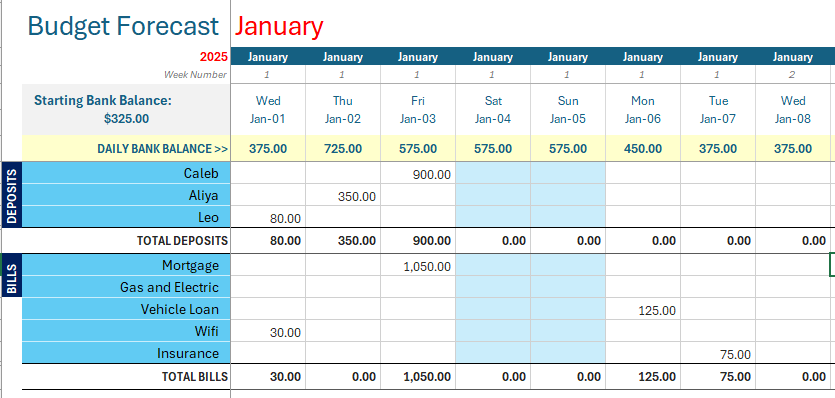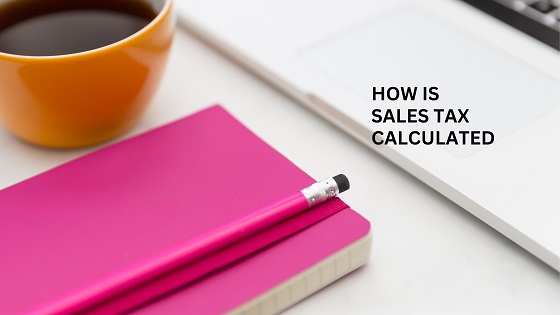- Home
- Cash Flow
What is Cash Flow?
Cash Flow Basics
What is cash flow? It is the term used for when money flows into a business and flows out again – hopefully more money flowing in that out!
Click above button to get our most popular Excel Template for easy bookkeeping! It's free.
The aim is to:
- Have a good flow of money coming into the business by gaining new customers, providing customer satisfaction and staying on top of accounts receivable with good debt collection strategies.
- Have good control of where the cash is flowing out to by forecasting where the cash will go, having a budget in place, sticking with it and avoiding reckless spending.

What is a Cash Flow Report?
A cash flow report is one of the top three reports to produce and look at on a regular basis, like once a month.
The other two reports are the income statement (called a profit and loss) and the balance sheet.
A cash flow report is a mixture of totals from both of those other reports.
With the income statement you only see the income and expenses and with the balance sheet you only see assets, liabilities and equity...
...but with the cash flow report you see everything from those two reports combined into one report which shows you exactly what happens to all the money flowing through your business.
Where Does the Cash Come From?
Here is a list of activities that are the source of funds for a business, and the report they can be found on.
- Sales payments from customers for goods or services - Profit and Loss
- Pre-payments/deposits from customers for goods or services in advance - Balance Sheet
- Funds received from a loan provider - Balance Sheet
- Funds introduced by the owner/s (Capital) - Balance Sheet
- Interest earned on savings or investment accounts - Profit and Loss
- Income tax refunds - Balance Sheet
- Payments by shareholders - Balance Sheet
Where Does the Cash Go To?
Here is a list of activities and reports that the cash is used on.
- Stock purchases - Balance Sheet
- Asset purchases - Balance Sheet
- Wages and salaries - Profit and Loss
- Sales tax payments - Balance Sheet
- Income tax payments - Balance Sheet
- Payroll taxes - Balance Sheet
- Funds taken by the owner - drawings - Balance Sheet
- Loan Repayments - Balance Sheet
- Interest on loans or bank overdrafts - Profit and Loss
- Operational expenses such as rent, power, vehicle expenses, repairs and maintenance…. the list can be long - Profit and Loss
The above lists give you a clue as to where in the accounts you should be entering your transactions when updating your daily bookkeeping data.
Where is the Cash?

A small business that has a fabulous net profit on their income statement may not have a great bank account balance which can confuse new business owners who think profit must equal money in the bank.
For example, their net profit might by $20,000, but the cash in the bank might only be $500.
Why is that?
To work it out, just look at the balance sheet to dig deeper into the following areas:-
Inventory – is the business purchasing and holding too much stock? (cash tied up in stock)
Assets – has the business been purchasing a lot of assets like vehicles, furniture, plant and equipment?
Accounts Receivable – does the business have a lot of money owed to it by customers?
Loan Repayments – does the business have loans that they are making monthly repayments on?
Drawings – is the business owner taking a lot of funds for personal expenditure?
Tax – did the business have to pay sales tax and/or income tax?
Bank – are any of the bank accounts running in overdraft or is there a big credit card debt?
These are all things that do not show up on the income statement because they are on the balance sheet so you cannot use an income statement by itself when checking your cash flow.
Checking Your Cash Flow
Regularly checking the cash flow (like once a month) can help you work out which areas of operating you need to make changes on to improve your small business cash flow – such as brain storming ways in which to make more stock sales, or decreasing your spending habits.
Bad cash flow can kill your business.
A fantastic way to avoid this is to prepare a cash flow forecast every month to project months ahead of time if you will have enough cash to cover your expenses so you can take action now if you see cash is going to be short in a few months time..
This is a real game changer because it gives you much greater control of your business money.
What is on a Cash flow Forecast
This is a spreadsheet that displays: -
- opening cash on hand balance at the beginning of a time period (usually the current month)
- the actual transactions that have occurred in the current reporting period (taken from your income statement and balance sheet for the month)
- the forecast transactions for the months ahead, taken from your budget
- closing cash on hand balance for the current month, and
- the forecast totals for the remaining months
If your bookkeeping software doesn't provide you with forecasting capabilities, then you can use an Excel template.
From within a blank Excel document go to File > New > in the Search for online templates field type small business cash flow forecast. Download this document and save it to get ready for using.
When you want to set up a cash flow forecast, you should first set up a budget.
What is Cash Flow vs Budget?
What is the difference between a cash flow and a budget?
They are very similar to each other but here is a list of their main differences:
- Cash flow is the term for describing where payments received into the bank have come from and what those funds were spent on
- A budget is a financial plan that a business makes to decide how to allocate their earnings on all the different types of expenses
- A cash flow report has opening and closing balances at the beginning and end of each month or reporting period
- A budget does not carry forward cash balances, it just has static totals
- What happens in one month of a cash flow will affect the totals carried forward in the remaining months
- A budget has a list of static numbers that are not affected by the previous month’s activities
So, work out your budget and enter those figures into the cash flow forecast in each month.
When you receive your actual income and bills you will update (or type over) your forecast budgeted figures with the actual amounts and instantly see the resulting balances down through the months.
If it looks like your bank is going to go into overdraft in any month, you need to decide what to do to avoid that.
You can also use cash flow ratios to ascertain where your business financials stand.

What is a Cash Flow Formula
A cash flow formula is used to calculate a ratio that will help you see if your business has enough funds to cover your expenses, or to indicate the amount of cash generated per dollar of net sales and a few other scenarios.
Accountingtools.com has some example ratios which you can use with your data if you like to know this kind of information.
If your money is very tight you can use a daily cash flow form to help you manage your cash.
What is a daily Cash Flow Form?
This is a simple spreadsheet that enables you to work out your immediate availability of cash.
You can update it every morning with income received into your bank account overnight and then decide which bills to pay now. You can add in your bills or wages that are due in the next few weeks and allocate daily earnings to cover those.
Go to this Excel cash flow form.






Facebook Comments
Leave me a comment in the box below.